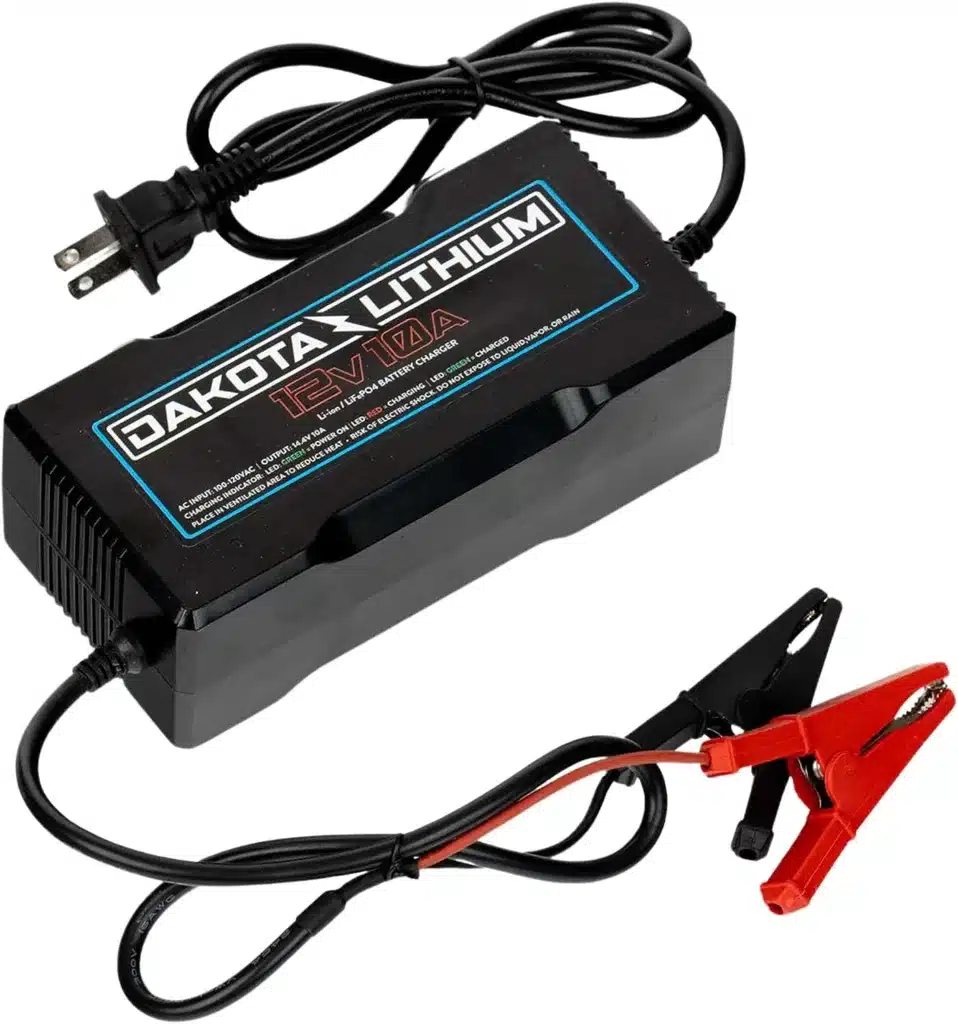What should you consider when choosing a car lithium battery charger? Selecting the right car lithium battery charger involves understanding your vehicle’s battery type, the charger’s compatibility, charging speed, and safety features. This ensures efficient charging and prolongs battery life, making it essential for maintaining your vehicle’s performance.
What types of lithium battery chargers are available for vehicles?
When selecting a lithium battery charger for your vehicle, you will encounter several types:
- Smart Chargers: These chargers automatically adjust the voltage and current based on the battery’s state, providing optimal charging without overloading.
- Trickle Chargers: Designed for maintaining battery charge over long periods, trickle chargers provide a slow and steady charge.
- Fast Chargers: These chargers can quickly recharge batteries but may generate heat, requiring monitoring to prevent damage.
How do you determine compatibility with your vehicle’s lithium battery?
To ensure compatibility with your vehicle’s lithium battery, follow these steps:
- Check Battery Specifications: Look for the voltage (commonly 12V or 24V) and chemistry (like LiFePO4 or Li-ion) of your battery.
- Consult the Owner’s Manual: The manual typically specifies the recommended charger type and specifications.
- Look for Certification Labels: Ensure that the charger is certified for use with lithium batteries to avoid potential damage.
Why is charging speed important when selecting a charger?
Charging speed is crucial as it affects how quickly you can get back on the road:
- Fast Charging: Ideal for quick power replenishment but may lead to overheating if not monitored properly.
- Standard Charging: Slower but safer for the battery’s longevity; suitable for regular maintenance.
- Smart Charging: Offers a balance by adjusting speed based on battery condition, providing efficiency without sacrificing safety.
What safety features should you look for in a lithium battery charger?
Safety features are essential to protect both your vehicle and the charger itself. Key features include:
- Overcharge Protection: Prevents the charger from supplying power once the battery is fully charged.
- Short-Circuit Protection: Safeguards against electrical faults that could cause damage or fire.
- Temperature Control: Monitors and manages heat levels during charging to prevent overheating.
How do you maintain your lithium battery charger?
Proper maintenance of your lithium battery charger can prolong its life and ensure safety:
- Regular Inspections: Check cables and connectors for any signs of wear or damage.
- Clean Connections: Ensure that all connections are clean and free from corrosion to maintain good conductivity.
- Store Properly: Keep the charger in a cool, dry place when not in use to prevent moisture damage.
Why is it important to read customer reviews before purchasing?
Reading customer reviews can provide valuable insights into product performance and reliability:
- Real-World Experiences: Reviews often highlight common issues or praises that may not be evident from product descriptions.
- Quality Indicators: High ratings and positive feedback can indicate a trustworthy product.
- Comparison Insight: Reviews can help compare different models based on user satisfaction.
What are the benefits of using a lithium battery charger over traditional chargers?
Lithium battery chargers offer several advantages compared to traditional lead-acid chargers:
| Feature | Lithium Battery Charger | Traditional Charger |
|---|---|---|
| Charging Speed | Faster | Slower |
| Efficiency | Higher | Lower |
| Compatibility | Designed for specific chemistries | Generalized |
| Maintenance | Minimal | More frequent |
Industrial News
Recent advancements in automotive battery technology have led to improved lithium chargers that enhance efficiency and safety. Manufacturers are focusing on developing smart charging systems that optimize energy use while minimizing heat generation. Additionally, there is an increasing emphasis on eco-friendly materials in charger construction, aligning with sustainability goals in automotive technology.
Redway Expert Insights
“Choosing the right car lithium battery charger is crucial for maintaining your vehicle’s performance. Look for chargers with smart technology that adapt to your battery’s needs, ensuring safe and efficient charging,” states Dr. Michael Thompson, an expert in automotive energy solutions.
FAQ Section
What voltage should my car lithium battery charger be?
Most car lithium batteries operate at 12V or 24V; ensure your charger matches this specification.Can I use a regular lead-acid charger on my lithium battery?
No, using a lead-acid charger can damage lithium batteries; always use a charger specifically designed for lithium technology.How often should I charge my car’s lithium battery?
Charge regularly based on usage; ideally when it drops below 20% capacity to maintain optimal health.Is it safe to leave my lithium battery charger plugged in?
Smart chargers can remain plugged in as they automatically switch off when charging is complete, but always check manufacturer guidelines.This structured article provides an in-depth guide on how to choose the right car lithium battery charger while addressing key considerations effectively.



